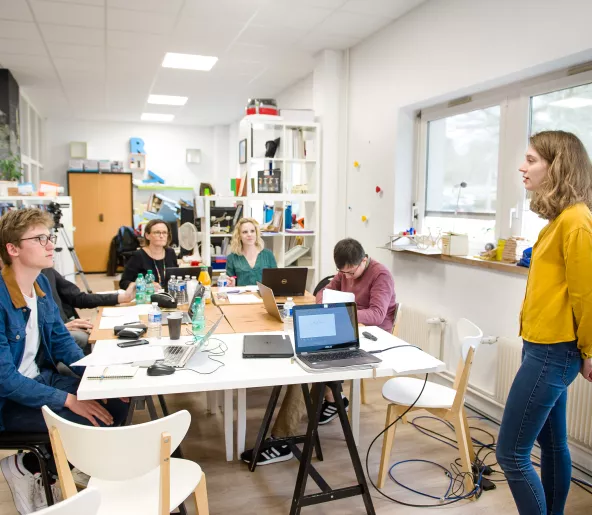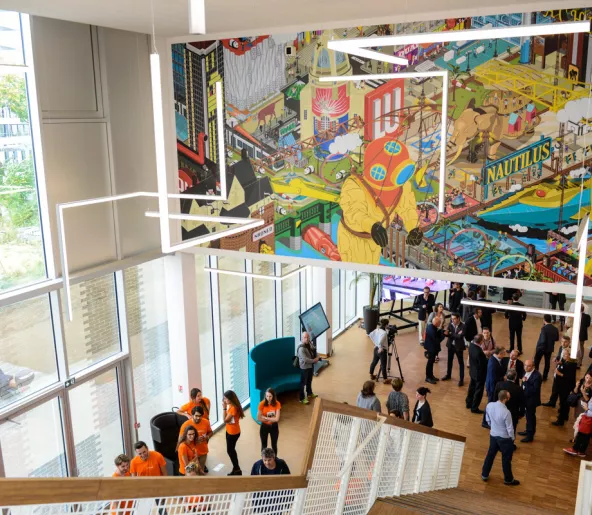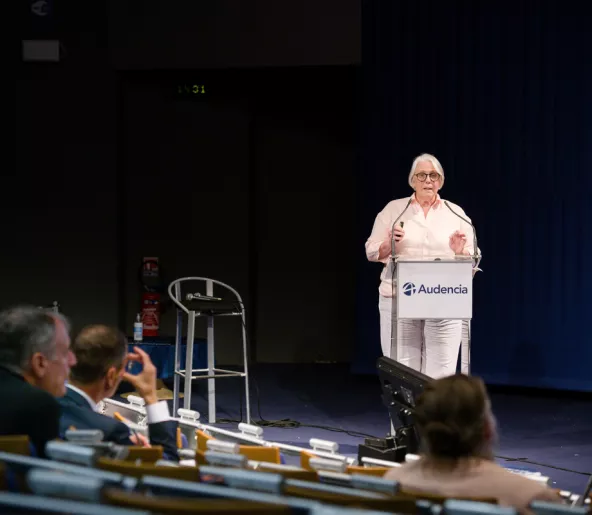International, intercultural and interdisciplinary approaches are central to the team, supported by long-term collaborations with Pr. Nicolas Bencherki (Montréal, CAN) and Prof. Cynthia Stohl (UCSB, USA). The scholarly and pedagogical programs associated with the department contribute to the development of research and professional practice around communication, media, and cultural processes. Our diverse approaches are complementary, allowing us to produce a fine-grained analysis of the interactions between actors. We try to grasp the multiple mediations at work in project situations: educational projects, action research, support for organizations and communication, media or cultural services.
We claim an interest in action research (intervention research, design research, etc.), project-based teaching, dialogues between the arts and sciences and management, and alternative research and teaching practices that position the department between experimental practices and epistemological questioning.
We work mainly at the Mediacampus, in the heart of the Quartier de la création on the Ile de Nantes: this location places us in a teeming ecosystem of digital, innovation and cultural entrepreneurship players.


